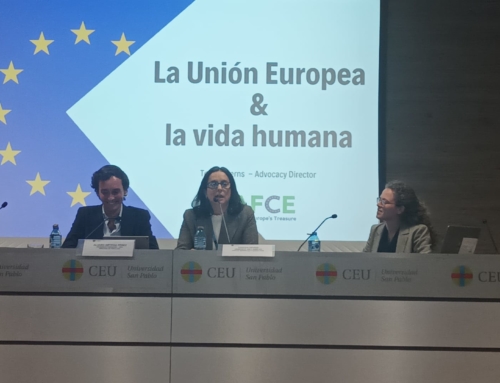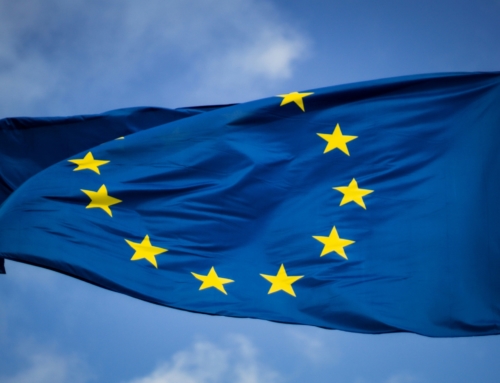10 October 2022,
Young families and the role of the European Union
Beyond the attention given to youth employment, a fundamental topic should be also tackled at the EU level: the wish of young people to start a family. In fact, they consider that family is the most important element in their life, whereas the number of births in the European Union decreases.
In Europe, young people finish their studies and enter the labour market later than in the past. The European Commission recently published the 2022 edition of the Employment and Social Developments in Europe (ESDE), which gives an average age of 25 or 26 to get a first job. The work contracts often include part-time and temporary positions, a practical option when having to conciliate with studies, however putting young people in the frontline in situations of economic crisis or slowdown.
The Youth Guarantee adopted in 2019 aimed to empower young people under the age of 25 to access education, training and jobs. Thanks to EU programmes, European governments were able to better reach out to young people who are neither in employment, education nor training (NEETs) through public employment services and the reform of education systems. The Youth Guarantee already supported 1.7 million young people throughout Europe.
Young people are the most affected by job losses due to the economic impact of the pandemic. With 2022 being the European Year of Youth, the European Commission introduced a reinforced Youth Guarantee: all young people under the age of 30 are entitled to a good quality offer of employment, continued education, apprenticeship and traineeship within a period of four months of becoming unemployed or leaving education. Among the many aspects of this policy, apprenticeship will be supported by the ALMA programme to increase studying and working abroad, and the digital transition will be tackled through more modern, attractive and adapted educative systems and work tools.
Some demographic facts
According to the European Commission’s 2020 report on The Impact of Demographic Change, in 2018 a woman in the EU had on average 1.55 children, which is “below the value of 2.1 considered to be the level required to keep the population size constant in the absence of migration”. If one considers birth rates data, European countries present great disparities: In 2020 namely, fertility rate per woman was the highest in France (1,88), a little above the EU average (1,56), whereas countries in the South of Europe (Spain, Italy, Cyprus, Malta) registered a fertility rate which was prior or equal to 1,36. However, even in countries with the highest rates, number of births decreases regularly. For example, in France, there were 759 000 births in 2018, 753 000 in 2019 and 740 000 in 2020. The working-age population (20-64 years) is projected to decrease and to be down to 51% by 2070 in Europe.
This phenomenon adds itself to the increase of women’s age when having their first child: it increased from 28.8 years in 2013 to 29.5 years in 2020 according to Eurostat. Even if the European Parliament recognised the pivotal role of women in many domains of the society such as education, care, social, health, the EU work-life balance legislation organises work-life balance and working arrangements mainly in order to guarantee women’s maximal participation in the labour market. Women are therefore evolving in a work environment that discourages them to become mothers.
Living conditions are another major issue. “In 2020, 94.4 million people [under 447 million], or 21.5 % of the EU population, were at risk of poverty or social exclusion. This means that they were in at least one of the following three conditions: at risk of poverty after social transfers; severely materially deprived; or living in a household with very low work intensity”.
How can European Union help young people to work and start a family?
In 2022, various legislative texts of the European institutions were adopted to create a better future for young people, which includes their wish to work and to start a family.
- In July the European Parliament adopted a resolution on Mental health in the digital world of work, focusing on the right to disconnect to ensure a better work-life balance. This would especially benefit parents with young children using telework, often struggling to conciliate work and family life.
- Meanwhile, the 2019 Work-life balance directive entered officially into force in all EU-members since August 2nd. The directive introduces new standards for the work-life balance of carers with better access to parental and carer leaves, and flexible working arrangements.
- In addition, a European Parliament Resolution on Women’s poverty in Europe underlined the importance of policies considering demographic challenges and promoting equal opportunities for most vulnerable groups, such as young people and single-parent families. The EU anti-poverty strategy can thus be a tool to support vulnerable young people.
Overall, investing in young families is the best public investment for the future, and family should not only be considered as a private matter. Community and family-based solution are especially relevant, in the respect of the subsidiarity principle.
These aspects will all be treated at the upcoming General States of Birth, on the 20th of October, in Paris. More info here.
Author: Pauline Wicquart, FAFCE Advocacy Intern







